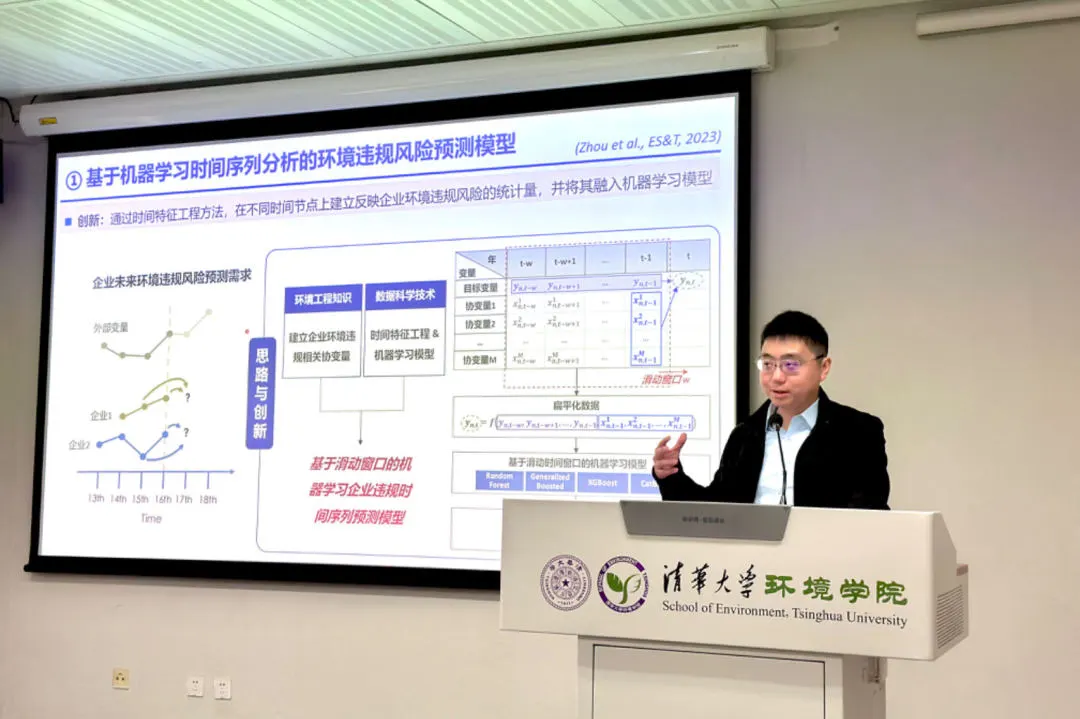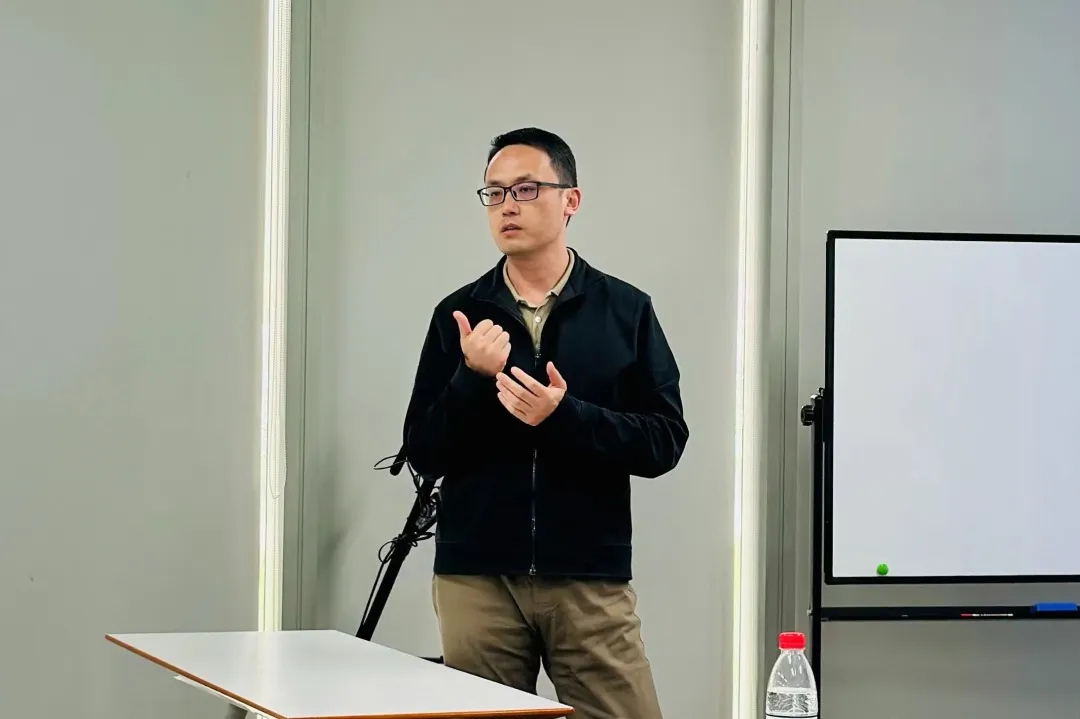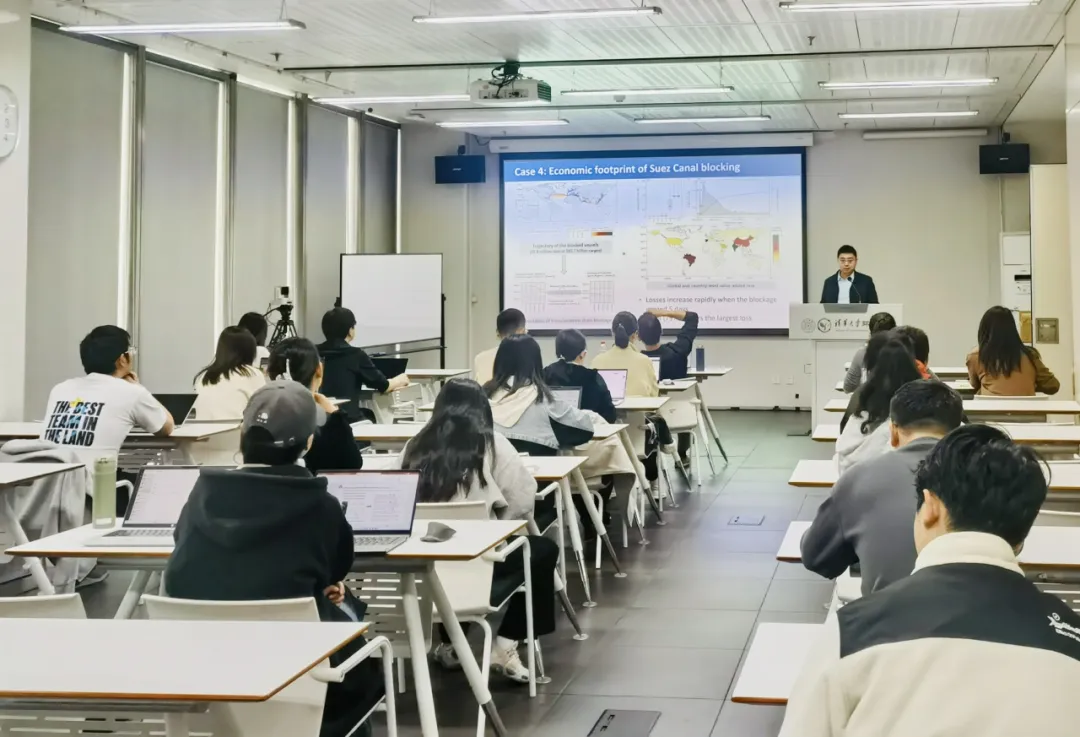On April 9th, Tsinghua University's School of Environment (SOE) successfully hosted the third "AI for Ecology and Environment" Academic Week in Room 119 as part of the "Four Decades of Environmental Science: Shaping the Future Together" series of academic activities, celebrating the school's 40th anniversary. The event was chaired by Professor Xu Ming, SOE Associate Dean. Professor Qu Shen from the Center for Energy and Environmental Policy Research at Beijing Institute of Technology delivered a special report titled "Industrial Ecology Simulation System Based on Adaptive Agents and Complex Networks (CLUES-ABM)." Over 40 participants attended the event.

Special report by Qu Shen
Qu Shen pointed out that traditional matrix algebra-based methods, such as the calculation and change analysis of environmental footprints, often struggle to accurately simulate complex systems due to their linear assumptions and low temporal resolution, particularly when systems face environmental or policy shocks. In contrast, CLUES-ABM employs an agent-based method, making the model more flexible and transparent in simulating interactions between economic and environmental systems, thereby better addressing complex challenges in the field of industrial ecology.
Through four case studies, Qu Shen demonstrated the effectiveness of CLUES-ABM in applications. For example, by simulating post-pandemic carbon emissions in China, the model can comprehensively consider factors such as the duration of the pandemic, fiscal stimulus policies, and the rate of change in industry emission factors to predict future carbon emission trends. When examining the impact of power outages on supply chain networks, the model can reveal both immediate and delayed effects. Additionally, the model's application potential was demonstrated in the environmental and economic risk assessment of chemical enterprise rectifications, as well as in analyzing the impact of the Suez Canal blockage on the global value chains.
Additionally, Qu Shen introduced the application of environmental AI driven by both "knowledge and data." When predicting environmental compliance risks for businesses, this model enhances the accuracy and interpretability of risk forecasting through feature engineering for time series and machine learning. To address the challenges in predicting water quality within treatment plants, Qu Shen's team constructed a machine learning prediction model based on feature engineering for time series. This model takes into account the lag and non-linearity associated with chemical dosing, significantly improving the accuracy of water quality forecasts.

Xu Ming chairs the event and delivers the concluding remarks
In his conclusion remarks, Xu Ming emphasized that in the era of AI, industrial ecology models need to evolve towards standardization, transparency, flexibility, and complexity. Qu Shen emphasized the need for future research to collect more real-world data to further constrain models. He advocated for a bottom-up approach to "grow" real-world phenomena, which sparked a lively discussions among attendees.

Event venue





